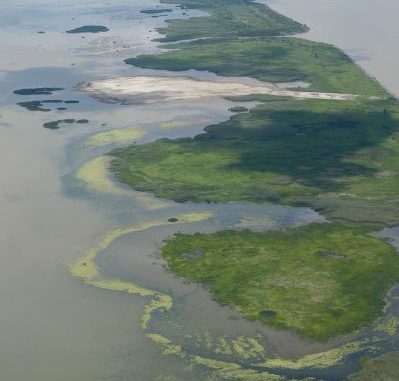
Researchers hope to determine if river can help stem coastal erosion
If there’s one underlying assumption that’s been used to justify the $50 billion cost of Louisiana’s Coastal Master Plan, it’s this: We actually have a chance to prevent Southeast Louisiana from drowning in the Gulf because the Mississippi River carries the mud and sand necessary to keep pace with sea-level rise.
Turns out that assumption was a best guess.
In fact, the definitive evidence for the state’s claim that the river carries hope for the coast is just now being collected. A small army of state and federal researchers has embarked on the first-ever comprehensive study of the lower river.
The Mississippi River Hydrodynamic and Delta Management Study is a massive $25 million, five-year project begun in 2011 that seeks to provide detailed information about the building materials that today’s river can offer restoration projects. In particular:
• Where and how those projects should be managed
• How effective they can be in building and protecting land in the adjoining basins
• How they will impact the U.S. Army Corps of Engineers’ traditional river responsibilities: navigation and flood control
The restoration effort relies centrally on diversions, places where the levees lining the Mississippi River will be breached to allow sediment-rich waters to flood and replenish adjacent basins, creating coastal marsh and new land. Currently, nine such diversions are planned between New Orleans and the Gulf.
“What we learn from this is absolutely critical to the success of the master plan,” said Paul Kemp, an LSU geologist and coastal researcher who served on a stakeholders’ panel that was a consultant to the state’s planning effort.
“The modeling for the master plan was amazing work done using the best information available at the time,” but that information was gathered back in the 1960s, Kemp said. “So, now we’ll find out what kind of river we have today.”
Editor’s Note: This story was produced in conjunction with The Lens, a nonprofit online newsroom based in New Orleans. Log onto TheLensNola.org for more information.


